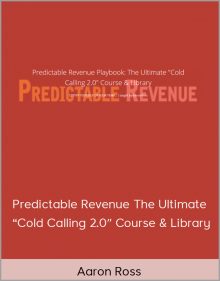The Learning Brain
Original price was: $234.94.$52.00Current price is: $52.00.
One of the most complicated and advanced computers on Earth can’t be purchased in any store. This astonishing device, responsible for storing and retrieving vast quantities of information that can be accessed at a moment’s notice, is the human brain.
- Description
- Reviews (0)
- More Products
Description
The Learning Brain

One of the most complicated and advanced computers on Earth can’t be purchased in any store. This astonishing device, responsible for storing and retrieving vast quantities of information that can be accessed at a moment’s notice, is the human brain. How does such a dynamic and powerful machine make memories, learn a language, and remember how to drive a car? What habits can we adopt to learn more effectively throughout our lives? And how do factors like traumatic injuries, stress, and mood affect our grey matter? The answers to these questions are merely the tip of the iceberg in The Learning Brain.
These 24 half-hour lectures offer in-depth and surprising lessons on how the brain learns and remembers. You begin your journey by focusing on which parts of the brain are responsible for different kinds of memory, from long-term memory for personal experiences and memorized facts to short-term memory, and how these memory systems work on a psychological and biological level. You’ll acquire a new understanding of how amnesia, aging, and sleep affect your brain. You’ll also discover better ways to absorb and retain all kinds of information in all stages of life. This course is chock full of valuable information whether you’re learning a new language at 60 or discovering calculus at 16. If you need better study habits, struggle with learning a new skill, or just worry about memories fading with age, The Learning Brainprovides illuminating insights and advice.
Map Your Brain’s Memory Areas
You’ll discover that the brain acquires, retains, and recalls information in several distinct ways.
- Explicit Learning refers to learning information that is consciously available and can be put into words. One example is “semantic memory,” which involves impersonal fact-based memories, such as the distance from the Earth to the sun or the capitals of different nations.
- Implicit Learning, by contrast, is learning that is unconscious and harder to put into words. One particularly important type of implicit learning is “procedural learning,” which is the learning of new skills such as playing the piano or playing golf.
As you learn new information and skills, you also put your working memory to use. Working memory is the cognitive system we use to hold on to information for just a few seconds or minutes at a time. For example, adding two two-digit numbers in your head or remembering the next step of a recipe while preparing a meal both utilize working memory.
While distinguishing the different learning systems that we use every day, Professor Polk also explains which regions of the brain underlie these various functions. Scientists use modern technology like fMRI and PET scans to see which parts of the brain are activated during different types of learning. By mapping out the brain in this way, doctors can isolate and treat brain damage, specific learning disabilities, and behavioral anomalies better than ever before.
Tackle Sensitive Psychological Issues
Specific learning disabilities are also common in children around the globe, and they can be detrimental as well as disheartening. Professor Polk covers a number of both common and lesser-known roadblocks to learning that result from these impairments. While primarily focusing on dyslexia, Professor Polk discusses how learning disabilities affect children in school and how such disabilities are manifested in the brain.
Can learning sometimes be more harmful than helpful? The answer is yes. While Professor Polk delves more deeply into bad habits with his previous course, The Addictive Brain, here he briefly covers the effects of addictive substances on your brain and how drugs of abuse can hijack the very mechanisms that allow us to learn so effectively. Specifically, all addictive drugs lead to the release of abnormal amounts of the neurotransmitter dopamine, which fools the brain into reinforcing drug-taking behavior, even though it’s harmful. With repeated drug use, this reinforcement can lead to irresistible cravings and to the downward spiral of harmful behavior associated with addiction.
Professor Polk presents the latest scientific evidence on these conditions. You’ll find a cornucopia of valuable information to better educate yourself, whether you or a loved one struggles with a learning-related problem, or whether you’re simply seeking to better understand how the brain works.
Learn to Learn
Haven’t we all stayed up until dawn cramming for a test, at some point in our life? Or, haven’t we all read and re-read the same paragraph in a book or in a speech we have to give, assuming we’ve memorized it, only to fail to remember it the next day? As it turns out, there are several popular studying habits and learning methods that range from helpful to harmful, and Professor Polk untangles this web in several lectures throughout the course.
- Learn how to “SCoRe.” That is to say, Space out your practice, Challenge yourself at just the right level of difficulty, and Randomize your studies.
- Master the four factors of motivation. Discover “self-efficacy,” or your confidence in your ability to learn; “perceived control,” which is the extent you believe you control how much you learn about a subject; “intrinsic motivation,” defined as wanting to learn something; and finally “value,” or how much you believe that what you’re learning truly matters.
- Unearth the most-effective study habits. From highlighting and underlining key phrases in books to using flash cards, from staying focused on one subject to testing yourself, not all study techniques are created equal. Find out which ones work best—and worst.
Neuroscience, Not Brain Surgery
Even with no prior experience in psychology, by taking this course you’ll soon have a working knowledge of how we make and retrieve memories, learn new skills, and get better results from studying, all from the vantage point of psychology, neuroscience, and biology. With a renowned psychology professor as your guide, The Learning Brainoffers facts, techniques, and practical knowledge with real-world applications. Whether you are a student in school, a student of life, or just curious about how your own mind works, this course not only improves your understanding of learning, but it also can help you become a better learner yourself.
Be the first to review “The Learning Brain”
You must be logged in to post a review.
-
Philadelphia Hypnosis – Quit: The Ultimate System For Running Effective Stop Smoking Sessions Hypnosis
Original price was: $497.00.$99.00Current price is: $99.00. Buy now -
Suzi Sena – Workplace Mental Health Competency Training – HR Strategies for Compliance, Safety, Productivity and Wellness
Original price was: $219.00.$50.00Current price is: $50.00. Buy now -
Mikee – Overnight Email List Course
Original price was: $197.00.$42.00Current price is: $42.00. Buy now -
Travis Stevens – Scientific Gripping
Original price was: $77.00.$27.00Current price is: $27.00. Buy now -
The Selling Family – 5 Courses – Learn How to Sell on Amazon
Original price was: $495.00.$62.00Current price is: $62.00. Buy now -
Quinton Batchelor – The Ultimate Photography Course – Beginner to Advanced
Original price was: $98.00.$32.00Current price is: $32.00. Buy now























Reviews
There are no reviews yet.